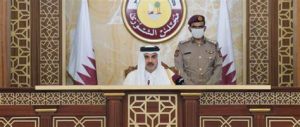
Staff Writer
Qataris will, for the first time, cast their votes in a legislative election on October 2. The election, for the 45-member advisory Shoura Council, will see 66% of its members being elected, with the other third being appointed by the Amir, Sheikh Tamim Al Thani. Speaking to Al Jazeera, Qatari Prime Minister Sheikh Khalid Al Thani argued that, “The principle in these elections is the complete conviction that Qataris are equal in rights and duties, and that this principle is achieved by observing the provisions of the Constitution, national traditions and stable customs, and through the established legal and constitutional tools and procedures.”
The advisory body is mainly concerned with oversight, and can only recommend a vote of no-confidence in the Prime Minister were two thirds to agree. This has been made difficult by the Amir’s appointment of a third of its members. Further, security, foreign policy, investments and defence have been excluded from the council’s remit, which means that it in all likelihood, it’s to only really advise on social issues. Moreover, only around 300 000 of Qatar’s 2.9 million population are eligible to vote, since around 90% of the country is comprised of migrant labour, who have little chance of citizenship. Moreover, the nomadic Murra tribe is largely ineligible, since their nomadic nature means that they have not been a constant in Qatar since 1930, as stated by the criteria.
Despite this, turnout will likely be high – a 2003 constitutional referendum, which is the source of most of these reforms, had been endorsed by around 85% of eligible voters. Further Sheikh Tamim, unlike many in the region, remains popular amongst most Qataris.







0 Comments